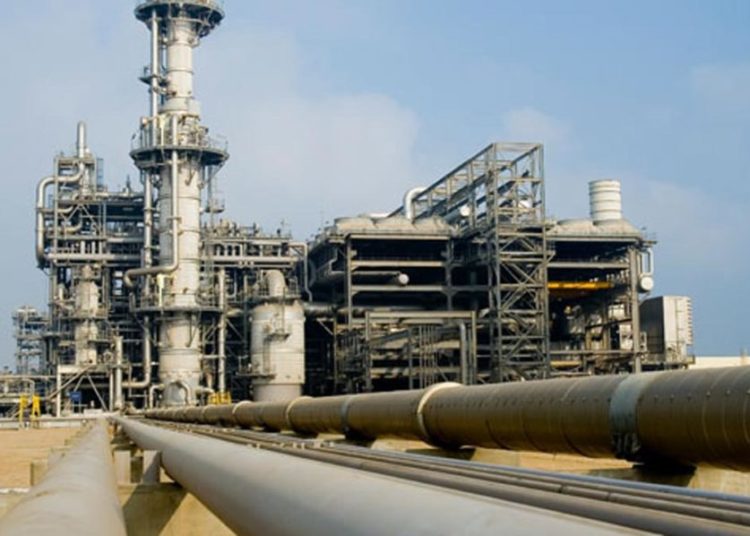Though Nigeria has been unable to exploit European demand post-Ukraine, more regional instability have compounded attempts to export its vast gas deposits to Europe.
This is also as the AKK pipeline in Nigeria faces delays and funding challenge.
Currently, the Niger coup and funding challenges on a key domestic pipeline threaten to dash one of Nigeria’s most ambitious infrastructure projects and its ticket to the European gas market, the Trans-Saharan gas pipeline.
The $13 billion, 4,128 km pipeline stretching from Warri in southern Nigeria through Niger to Algeria’s Hassi R’Mel gas hub, on the cards since 2002, would carry 30 billion cubic meters Bcm of gas daily, according to a communique by the three countries last year.
Nigeria has declared the 2020s to be a “decade of gas”.
However, the plan risks collapsing altogether after a military coup in Niger in July saw Nigeria-led regional bloc ECOWAS threaten to deploy troops.
Meanwhile, domestic infrastructure woes in Nigeria – particularly on the faltering AKK pipeline – have led many to question the viability of a project that aims to connect Africa’s biggest gas reserves with European countries looking to replace Russian hydrocarbons.
“The Trans Saharan gas pipeline project presents an ambitious vision for energy infrastructure in Africa, however, its feasibility faces two critical challenges,” said an energy expert and partner at Lagos-based Megathos Law Practice, Olufola Wusu,
He added that, “first, the security situation in Niger and neighboring regions poses a substantial risk to the project’s stability prior to construction and post construction. Second, its dependency on the delayed and self-funded AKK pipeline introduces complexity and uncertainty.”
The Niger crisis has reached a stalemate six weeks after President Mohamed Bazoum was deposed by his presidential guard, triggering punitive Ecowas sanctions including freezing state assets and stopping business activity, and talk of troop deployment. Niger was a longstanding Western ally and boasts significant deposits of uranium and oil.
The Director of Strategic Stabilisation Advisors, a Washington DC-based consultancy and a former State Department official, Aneliese Bernard, said security experts were concerned an Ecowas invasion could trigger an explosion of violence on the Nigeria-Niger border, where local leaders have kept a fragile peace, potentially bridging insecurity in both the Chad Basin and the wider Sahel complex.
Much of the Trans Saharan pipeline’s $13 billion capex will be spent in Niger, which currently produces just 20,000 b/d of oil and scant gas, but is due to bring the 110,000 b/d Chinese-built Niger-Benin oil pipeline online soon.
The Trans Saharan pipeline could enable Niger to monetize its own recoverable gas reserves, estimated at 34 Bcm according to Savannah Energy, the only Western oil company active in the country, and help tackle the region’s rampant illicit fuel trade.
Bernard said, the Trans-Saharan pipeline could explain Algeria’s eagerness to mediate in the Niger crisis, after Mali and Burkina Faso – also led by military juntas – said they would assist Niger in the event of an Ecowas invasion.
“Algeria are throwing themselves into this. I think that is likely because of their investments and incentives to ensure that a pipeline continues to be developed,” she said. The North African country – which is also seeking to exploit elevated European gas demand – does not intend to support the Ecowas sanctions.
An analyst at Lagos-based FBNQuest, Uwadiae Osadiaye, said the continuation of the pipeline will depend on whether Niger’s junta decides to “play ball”. “If I am a member of the new government, I would consider it an opportunity for my country’s economy,” he said.
‘The generals still want to do it,’ chairman of the African Energy Chamber, a lobbying group, NJ Ayuk, told S&P Global.
While questions loom over the Nigerien portion of the project, Nigeria too has struggled to get its ducks in a row.
The 614 km Ajaokuta-Kaduna-Kano, AKK, gas pipeline, phase one of Nigeria’s section, has seen construction stall due to a lack of available financing after Chinese banks pulled out of the project.
As a result, the Nigerian National Petroleum Company Limited(NNPCL) is shouldering the financial burden of the project, designed to transport gas from the southern Niger Delta to the power-deprived north, feeding power stations and the Trans Saharan pipeline.
As of April, the NNPC had sunk $1 billion into the project, which is 70 per cent complete. Originally billed for completion in 2022, analysts say it could drag on unfinished for years.
Issues with the Trans Saharan pipeline are the latest to blight Nigeria’s oil and gas sector. Nigeria, which has seen oil production slide in recent years, has made its estimated 203 Tcf of natural gas a cornerstone of its energy policy.
However, with limited export infrastructure, it has found itself unable to satisfy rocketing European demand for gas following Russia’s invasion of Ukraine. Nigeria exported just 9.06 million mt of LNG to Europe in 2022, according to data from S&P Global, slightly below its 2021 figure of 9.58 million mt.
Algeria currently delivers pipeline gas and LNG to Europe, meaning new infrastructure would be required if the Trans Saharan pipeline is constructed, another hurdle for the project to overcome.
The Trans Saharan pipeline is competing with the even more ambitious Trans Africa pipeline, which would snake through 13 West African countries from Nigeria to Morocco. That project, despite inching closer with a recent MOU between Nigeria and Morocco, remains years away.
Wusu said Nigeria would be better off boosting LNG production and exports, rather than relying on vast transnational pipeline projects such as the Trans Saharan gas pipeline. “The most effective gas monetization strategy remains LNG,” he said.





